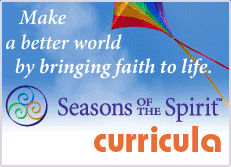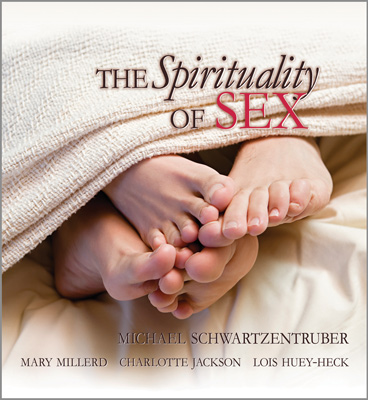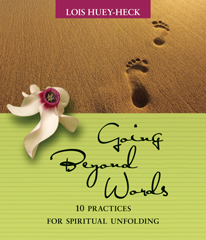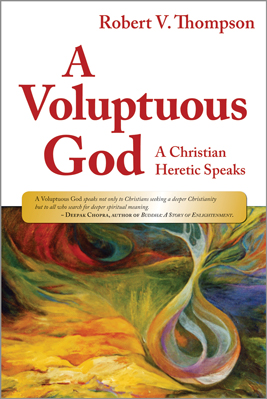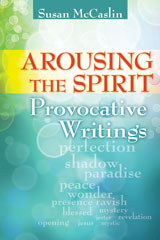
Arousing the Spirit
Provocative WritingsSusan McCaslin
240 PP | 6" x 9"
Paper
ISBN: 978-1-55145-597-6
“[This book] is not just for the religious or for Christians, but also for anyone who is alienated from religion but interested in spirituality… It is even for atheists who can’t accept a theistic God who manipulates things from outside on behalf of ‘his chosen ones’ or tribe of ‘true believers.’”
– Susan McCaslin
These writings by author-poet Susan McCaslin offer fresh and alternative ways of seeing and understanding our relationship with the Spirit. Christian-based, the 14 pieces that make up this collection (on topics such as perfectionism, paradise, the Beatitudes, Revelation, and presence) range beyond the compass of traditional Christianity to reveal universal wisdom and meaning.
Written in beautifully nuanced language that articulates her clear thinking and captures her poet heart, the book reflects the central passions of McCaslin’s life: “mysticism (or the direct experience of the sacred) and its place in everyday life; peacemaking and justice;…the relation of spirituality and sexuality; and the significance of Jesus of Nazareth once divested of outworn theology and his sappy Hollywood persona.” McCaslin believes that actions speak louder than words or beliefs, and her pieces encourage us to explore ways to live life as a “mystical dance.”
Each chapter is prefaced by one of McCaslin’s exquisite poems, leading the reader into a place of quiet contemplation from which to explore the writing.
Susan McCaslin, Author
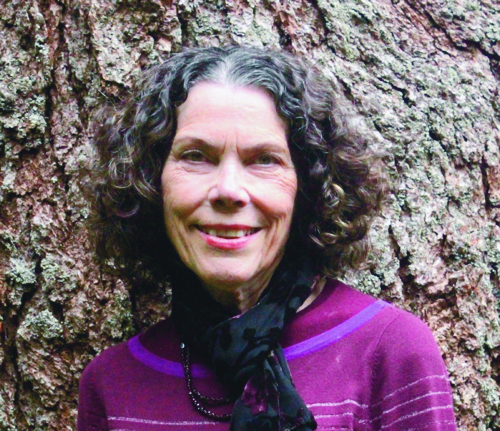
Susan McCaslin is a Canadian poet and Thomas Merton scholar who has published 15 volumes of poetry, including several long sequences on Thomas Merton. Susan is a Wood Lake author of a volume of essays titled Arousing the Spirit: Provocative Writings (Wood Lake Books, 2011). Her most recent volume of poetry is Into the Open: Poems New and Selected (Inanna Publications, 2017). Previous volumes include Painter, Poet, Mountain: After Cézanne (Quattro Books, 2016) and Demeter Goes Skydiving (University of Alberta Press, 2011)The latter was short-listed for the BC Book Prize (Dorothy Livesay Award) and the first-place winner of the Alberta Book Publishing Award (Robert Kroetsch Poetry Book Award). McCaslin has published critical essays on Merton in The Merton Seasonal, The Merton Annual, Thomas Merton: Monk on the Edge (The Thomas Merton Society of Canada), Merton and Hesychasm (Fons Vitae), and We Are Already One: Thomas Merton’s Message of Hope; Reflections to Honour His Centenary (1915–2015). Her recent memoir is Into the Mystic: My Years with Olga (Inanna, 2014). She resides in Fort Langley, British Columbia with her husband, Mark, where she initiated the Han Shan Poetry Project as part of a successful campaign to save an endangered rainforest along the Fraser River. www.susanmccaslin.ca
Media Reviews
Author of Darwin, Divinity, and the Dance of the Cosmos and If Darwin Prayed
Bruce SanguinIn these essays, we get the best of both worlds – a scholar's clarity and a mystical poet's sensibility. McCaslin brings rare depth, both psychological and spiritual, to her writing. Prepare to be spiritually aroused.
Vancouver Sun
Douglas ToddAlways intimate, always wise, Susan McCaslin brings alive the depths and heights of spiritual life with a rare persuasiveness. I come away from her writing convinced of the mystical realities she describes so vividly.
Author of Going to the Well: a Mother-Daughter Journey
Nancy RoederReading Susan McCaslin’s Arousing the Spirit is a wonderful dip into keen observations and enlightening perceptions about spiritual matters. Image-laden poems provide segues from chapter to chapter, inviting the reader to join in a contemplative journey through such mind-engaging topics as the perils of perfectionism, transforming our worst selves (the Jungian shadow), being present, war-peace and peaceful resisters, paradoxes (fire and ice), and mystery.
McCaslin’s book is scholarly - meticulously researched and documented – but far from dry. In lucid prose, she invites us to consider viewing conventional dogma creatively, in new ways. Surprises abound such as the chapters on “Jesus as Trickster,” or “Re-visioning Revelation.”
Plenty of ahas abound as well. She envisions Jesus not just as teacher, healer, preacher, but also as being full of humor, inconsistencies, and apparent contradictions. She sees the story of the Pentecost as an evolutionary tale of birth and transformation with global implications. And in her wonderful chapter on The Song of Songs entitled “Rapturous Ravishments,” she includes a poem she wrote in which she takes on the Freudians for reducing Teresa of Avila’s experiences to sublimated sexuality.
I return to this volume time and time again for nourishment, understanding, reflection, and insight.
Progressive Christianity.org
These writings by author-poet Susan McCaslin offer fresh and alternative ways of seeing and understanding our relationship with Spirit. Christian-based, the 14 pieces that make up this collection (on topics such as perfectionism, paradise, the Beatitudes, Revelation, and presence) range beyond the compass of traditional Christianity to reveal universal wisdom and meaning.
Written in beautifully nuanced language that articulates her clear thinking and captures her poet heart, the book reflects the central passions of McCaslins life: mysticism (or the direct experience of the sacred) and its place in everyday life; peacemaking and justice; the relation of spirituality and sexuality; and the significance of Jesus of Nazareth once divested of outworn theology and his sappy Hollywood persona. McCaslin believes that actions speak louder than words or beliefs, and her pieces encourage us to explore ways to live life as a mystical dance.
Each chapter is prefaced by one of McCaslins exquisite poems, leading the reader into a place of quiet contemplation from which to explore the writing.
From Chapter One, "The Problem with Perfect"
Embracing the Imperfect
When we think of the legacy of the mystics, we hear much of an ascent through stages of mystical perfection to ultimate unity, fulfillment, or realization. In the east, the quest for unified being has been called enlightenment. Such traditions of “the perfect” can be useful today, but they must be re-contextualized.
Perhaps the kind of perfectionism that spoils both art and life is that which rejects the transitory and limited. Great artists know that, as Wallace Stevens states, “the imperfect is our paradise.” Leonard Cohen gets it right when he sings, “There is a crack in everything; that’s how the light gets in.” In fact, however much we affirm what Stevens calls the “blessed rage for order,” the universe as we know it is not a neat and tidy place.
Greatness involves giving over our little orderings in the grand Chaos to an order beyond our present comprehension. We are opened to a needful disturbance. In other words, God’s kitchen is a fecund mess that ends in a festive banquet. The vastness of star-strewn space suggests a cosmic order, but not a rigid, fathomable one. This is why poets, artists, city planners, architects, and ecologists feel a part of something larger than their original intent. In the creative process, plots and plans may go askew as newness invades. Perhaps heaven is not a topiary garden but a rain forest with falling trees, rotting nurse logs, and the mysterious activity of microbes.
Perfectionism resists this fertile chaos out of fear: it wants to evade the essential breaking open. The ego likes to keep to the past, to safe strategies that have worked before, while Spirit says, “Behold, I destroy your blunders and pasty efforts and blow them to smithereens to make all things new.”
To enter such a process of kenosis or letting go requires courage, because one never knows what will have to be sacrificed. Sometimes what a writer thinks are the finest bits have to go. Sometimes they seem like clearings of the throat that must be resigned to the waste bin. Perhaps those Tibetan monks who make sand mandalas are closer to the truth of art than those who are too much focused on product. After weeks of painstaking labour, they consign the work of their hands to water.
Letting Go into the General Dance
Following the call to perfection requires some striving. It also requires letting go. With this in mind, there are common usages of the word perfect that seem perfectly fitting. A dog lolling on a lawn, for instance, is perfect because she is completely at one with the moment and is not being anything other than herself. The birds of the air and the lilies of the field are perfect, as Jesus observed, because they “toil not neither do they spin.” They naturally let life ripple through and complete them. When the French say a meal is parfait, they mean it is completely satisfying and right. And when the mystics speak of “the ladder of perfection,” or “the scale of perfection,” they have in mind an ascending evolutionary spiral through various phases of consciousness, not the attainment of a static perfection.
Perhaps another way of putting it is that if you want to enter the cosmic dance where all is in the process of increasing the amount of love in the universe, anywhere you are along the way can be right and in harmony. Rejecting perfectionism, as opposed to perfection, doesn’t mean that there are no deeper levels of maturity in the spiritual life.
It is helpful to look at Jesus as one who, like us, was birthed to oneness through a process of transformation. To make Jesus of Nazareth into the flawless only Son of God diminishes him. In fact, the belief that Jesus was the perfect lamb who died for our sins is wrongheaded because it denies the love and compassion of God and our direct access to the fountains of mercy.
…In the end, what is needed is a raising of consciousness in which body, mind, emotions, and spirit are in balance with the great Spirit that moves the sun and the stars. Out of this global consciousness may issue social justice and equality – the kingdom of heaven on earth. This process does not require perfectionism in the modern sense, but a mindful spiritual practice in conjunction with a simple opening of the heart to greater oneness with the hidden wholeness that already lies deep within each of us.


